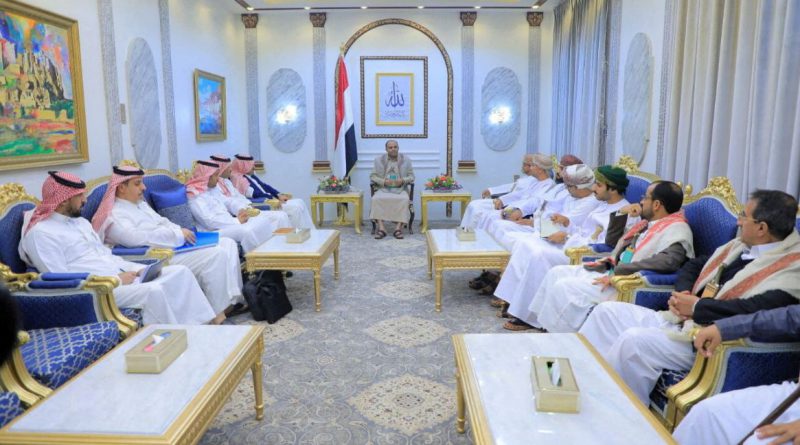Delegation of Houthi Rebels Holds Talks in Saudi Arabia, Signaling Potential Progress in Yemen Conflict
Riyadh — A delegation of Houthi rebels visited Saudi Arabia last week for talks that lasted five days. This was their first official visit to the Kingdom since the Yemen war erupted in 2014. The negotiations centered on reaching a potential agreement that could expedite the end of hostilities.
Positive strides were reported on several key issues that have been major points of contention. These include establishing a timeline for the withdrawal of foreign troops from Yemen, devising a mechanism for paying public servants’ salaries, and discussing the full reopening of Houthi-controlled ports and Sanaa airport, as well as reconstruction efforts.
The meetings between the Houthi rebels and Saudi officials were hailed by Antony Blinken, the US secretary of state, as a “moment of opportunity”. He described them as the highest-level and most publicized negotiations with the Houthis in Saudi Arabia over the past nine years. The Saudi government also welcomed the positive outcomes of the discussions.
However, United Nations officials have cautioned that the situation on the ground in Yemen remains “fragile and challenging,” with active front lines. The conflict has resulted in the deaths and injuries of hundreds of thousands of people and has left 80 percent of Yemen’s population reliant on humanitarian aid.
Timothy Lenderking, the US special envoy for Yemen, emphasized the tireless efforts being made by the United States to bring an end to the conflict. Lenderking, whose primary mission is to resolve the crisis in Yemen, expressed his commitment to achieving a just and comprehensive resolution to the war. He highlighted the need for a transition from the current truce to a durable ceasefire and Yemeni-Yemeni political talks.
Lenderking noted the positive developments that have taken place over the past 18 months, including the de-escalation of violence and the opening of Sanaa airport for commercial flights. He acknowledged that progress had been made but stressed the importance of further positive results and the need to address the prevailing distrust between the parties involved.
The US envoy also highlighted the significance of the international community’s support for the peace process, with meetings between US Secretary of State Blinken and other key stakeholders demonstrating their determination to move the peace process forward. He cited the strong unity among the permanent members of the Security Council (P5) on the need for a political solution in Yemen.
Lenderking also addressed the potential impact of the Saudi-Iran rapprochement on the Yemeni conflict. While acknowledging the groundwork that had been laid before the announcement of the Saudi-Iran deal, he expressed hope that Iran’s posture towards Yemen would change. He emphasized the importance of Iran’s support for a political solution and its cessation of smuggling weapons and aid to the Houthis.
Despite the progress made in diplomatic efforts, Yemen continues to face a dire humanitarian crisis. The UN has appealed for funding to address the needs of the 21.6 million Yemenis requiring humanitarian assistance. Currently, only 30 percent of the targeted funding has been met.
Moving forward, the focus will be on capitalizing on the positive momentum achieved and driving the peace process under the leadership of the United Nations. The ultimate objective is to reach a peace agreement through Yemeni-Yemeni negotiations, with the support of the international community.
The recent talks between the Houthi rebels and Saudi officials mark a significant step forward in the search for a resolution to the Yemeni conflict. While challenges remain, the international community’s commitment and the willingness of the parties involved to engage in dialogue provide hope for a brighter future for Yemen and its war-weary population.



